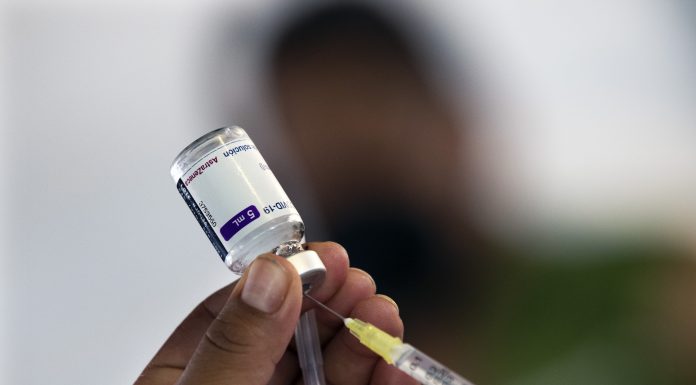(Molly Bruns, Headline USA) Data from the United Kingdom revealed devastating truths about the AstraZeneca vaccine, showing that young women’s chances of death related to heart disease rose by 3.5 times after their first dose.
Britain’s Office for National Statistics researched hospitalizations, vaccination status and death records of females between ages 12 and 29 who received vaccinations. Researchers discovered that there is reason to believe young women are at higher risk for heart attacks and other life-threatening diseases after just one dose of the non-MRNA vaccines.
According to Breitbart, the increased risk of death was not apparent in the age group in the first three months following their initial dose. the U.K. only recorded 59 vaccine-related deaths for 144.7 million doses given.
However, deaths related to heart problems—including cardiac arrest, heart disease and myocarditis—are recorded at 3.5 times the rate in young women in the first three months post-initial vaccination.
The report indicated that men in the same age group are not privy to the same disease for either the non-MRNA, such as AstraZeneca, or MRNA vaccinations, including Pfizer and Moderna.
“We find no evidence that the risk of cardiac or all cause death is increased in the weeks following vaccination with mRNA vaccines,” said Vahé Nafilyan, a senior statistician at ONS. “However, receiving a first dose of a non-mRNA vaccine was associated with an increased risk of cardiac death in young women.”
Nafilyan continued, explaining that “vaccination carries some risks,” and the ONS will continue to research the effects of the non-MRNA vaccines in order to better gauge the extent of the possible side effects.
“These are interesting data which generate as many questions as answers,” said Adam Finn, Professor of paediatrics at the University of Bristol. “The findings are somewhat unexpected, as concerns about rare cardiac side-effects – specifically myocarditis and pericarditis – have hitherto been particularly associated with mRNA vaccine second doses in males especially when the dose interval was short, whereas the signal reported here is primarily in non-mRNA first doses in females.”
Young people in the United Kingdom are hesitating to get vaccinated as questions about their efficacy and side effects continue to crop up, resulting an a vaccination rate of almost half of peak-pandemic numbers.

